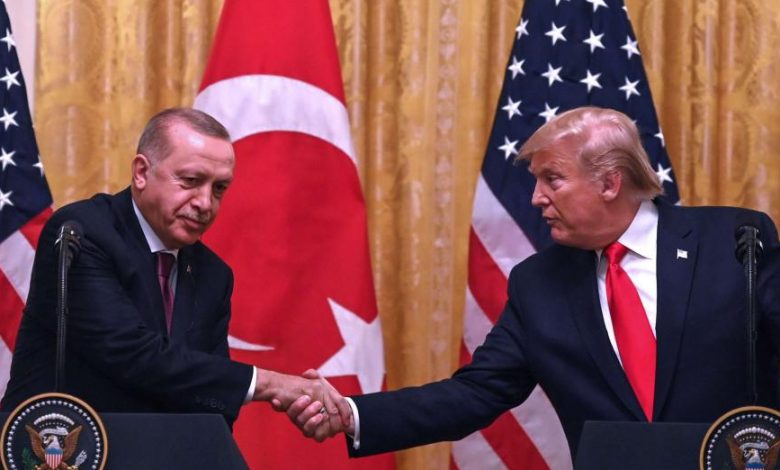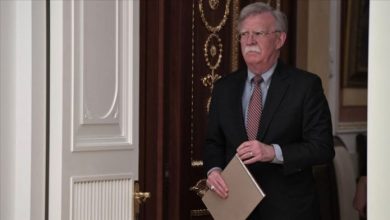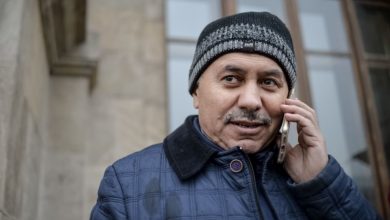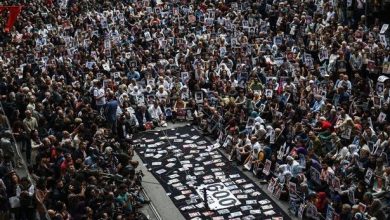Trump, Erdoğan, and obstruction as a way of life
Erdoğan repeatedly asked Trump to hand over Atilla.

Former U.S. national security advisor John Bolton’s new book, “The Room Where It Happened”, is a damning account of Donald Trump’s presidency and kow-towing to authoritarian world leaders. It highlights a pattern of unethical and illegal behaviour, including how Trump gave “personal favours to dictators he liked.” According to Bolton, Trump practiced “obstruction of justice as a way of life”.
The book extensively addresses Trump’s relationship with Turkey’s President Recep Tayyip Erdoğan. “Nothing good was going to come of this renewed bromance with yet another authoritarian foreign leader,” Bolton warned.
Erdoğan cultivated Trump to advance his primary policy priorities:
- Drop the charges against Turkish state-run Halkbank for violating U.S. sanctions on Iran.
- Secure the deportation of U.S.-based Islamist cleric Fethullah Gülen, whom Erdoğan accused of plotting the failed 2016 coup against him.
- Convince the U.S. to withdraw from northern Syria, thereby abandoning America’s Kurdish allies.
Collusion with Turkey started even before Trump was inaugurated. The malfeasance precedent was established by Michael Flynn, a senior adviser to the Trump campaign who was appointed national security adviser, but only served 17 days. Flynn cooperated with investigators in exchange for leniency. He accepted the plea deal to escape charges that threatened him and his son who worked for Flynn Intel.
Flynn ultimately pleaded guilty to just a single count of lying to the FBI, though his offences were more numerous and egregious. They included influence peddling; violations of the Foreign Agents Registration Act (FARA); and an alleged plot to kidnap Gülen and enable his rendition to Turkey. Flynn’s later said that his sworn affidavit to the FBI had omitted “that officials from the Republic of Turkey provided supervision and direction over the Turkey project,” which included editorial assistance to Flynn’s op-ed smearing Gülen in The Hill on November 8, 2016.
Erdoğan learned from dealings with Flynn that the Trump administration was vulnerable to manipulation, and took further steps to exploit Trump’s vanity and shallow understanding of U.S.-Turkey relations.
In May 2018, Erdoğan provided Trump with a memo maintaining the innocence of Halkbank, which was under investigation by the U.S. Attorney for the Southern District of New York for allegedly funnelling $20 billion to Iran in violation of U.S. sanctions.
Prosecutors with the Southern District identified Erdoğan and his son-in-law, Berat Albayrak, as unnamed co-conspirators in the indictment of Mehmet Atilla, a senior official of Halkbank, convicted of financial fraud. Erdoğan and Albayrak faced legal jeopardy because of allegations they and their family used Halkbank for personal purposes, including laundering money of Turkish stolen assets.
Erdoğan repeatedly asked Trump to hand over Atilla. Trump promised Erdoğan he would “take care of things”, indicating that Southern District prosecutors were “not his people, but were Obama people, a problem that would be fixed when they were replaced by his people.’”
According to Bolton, Trump asked “multiple federal agencies to address Erdoğan’s concerns.” He then reached out to acting Attorney General Matt Whitaker to “fix” Turkey’s problem. Bloomberg reported in April 2019 that Trump instructed Treasury secretary Steven Mnuchin and Attorney General William Barr to address Erdoğan’s request that Halkbank avoid charges.
According to Senator Ron Wyden, ranking member of the Senate Finance Committee, “Donald Trump attempted to interfere in a criminal investigation into the largest sanctions violations scheme in U.S. history.”
Trump’s acquiescence to Erdoğan also posed a risk to U.S. national security. Trump defended Erdoğan despite his decision to purchase S-400 missiles from Russia. The purchase should have triggered mandatory sanctions against Turkey under the Countering America’s Adversaries Through Sanctions Act (CAATSA), adopted by Congress on July 27, 2017. When Congress threatened to halt the sale of sophisticated F-35 stealth fighters to Turkey, Bolton warned: “Erdoğan had a lot to worry about”. But Trump stood by Erdoğan, refusing to order sanctions as required by U.S. law. CAATSA still has not been invoked against Turkey.
U.S. support for Kurdish fighters in northern Syria was another thorn in Erdoğan’s side. Erdoğan called the Syrian Democratic Forces (SDF) “terrorists”. He insisted that the SDF threatened Turkey, though Syrian Kurds never launched a cross-border incursion.
Trump caved to Erdoğan’s demands in a phone call on December 14, 2018. He unexpectedly agreed to withdraw U.S. forces from observation posts in northern Syria, which had effectively deterred Turkey’s cross-border operations against the SDF. The SDF served as America’s boots on-the-ground against Islamic State (ISIS). At least 11,000 SDF members died and 24,000 were seriously injured fighting ISIS at America’s behest.
Bolton explains: “Trump could not grasp the fact that Erdoğan was a radical Islamist and that Erdoğan was supporting the Muslim Brotherhood, that he was supporting radicals across the Middle East by financing Hezbollah and Hamas, and that Erdoğan was also hostile to Israel.”
Parroting “standard Erdoğan regime propaganda”, Trump accused the Kurds of targeting Armenians and other Christians in northern Syria when, in fact, the Kurds were protecting Christians from Turkey’s jihadist proxies. Trump was criticised for abandoning the Kurds and replied: “The Turks and the Kurds have been fighting for many years. We’re not getting involved in a civil war.”
Bolton was instructed to craft a statement that the United States had vanquished ISIS and was leaving Turkey to mop up the group’s remnants in Syria after the phone call on December 14. Defeating al-Qaeda and ISIS was a priority for the U.S. beginning with the administration of George W. Bush. However, Bolton quoted Trump as saying: “Erdoğan doesn’t care about ISIS.”
Secretary of Defence James Mattis resigned in protest of Trump’s decision, including his abandonment of the Kurds. Even after Mattis’ resignation, the Pentagon slow-walked the withdrawal of U.S. forces from northern Syria, enraging Erdoğan. Trump reiterated his pledge to withdraw from northern Syria in another phone call with Erdoğan on October 6, 2019.
While Erdoğan succeeded in persuading Trump to betray the Kurds, he failed to persuade Trump to extradite Fethullah Gülen. Trump’s Justice Department is still reviewing the case. Erdoğan also failed to get the U.S. authorities to drop charges against Halkbank.
Trump has a case of dictator envy and tried to impress Erdoğan. In response, Erdoğan goes out of the way to flatter Trump and establish a personal rapport that can be leveraged against Congressional efforts on sanctions, CAATSA, and Armenian Genocide recognition. Trump and Erdoğan share authoritarian tendencies and disdain for the rule of law. Bolton likens Erdoğan to the Italian fascist Benito Mussolini.
Bolton was in the room. His information in “The Room Where It Happened” is credible. However, Bolton is no patriot. He should have told the truth during the impeachment process. The national interest is greater than Bolton’s efforts to monetise his insider information to promote book sales.
Source: Ahval




